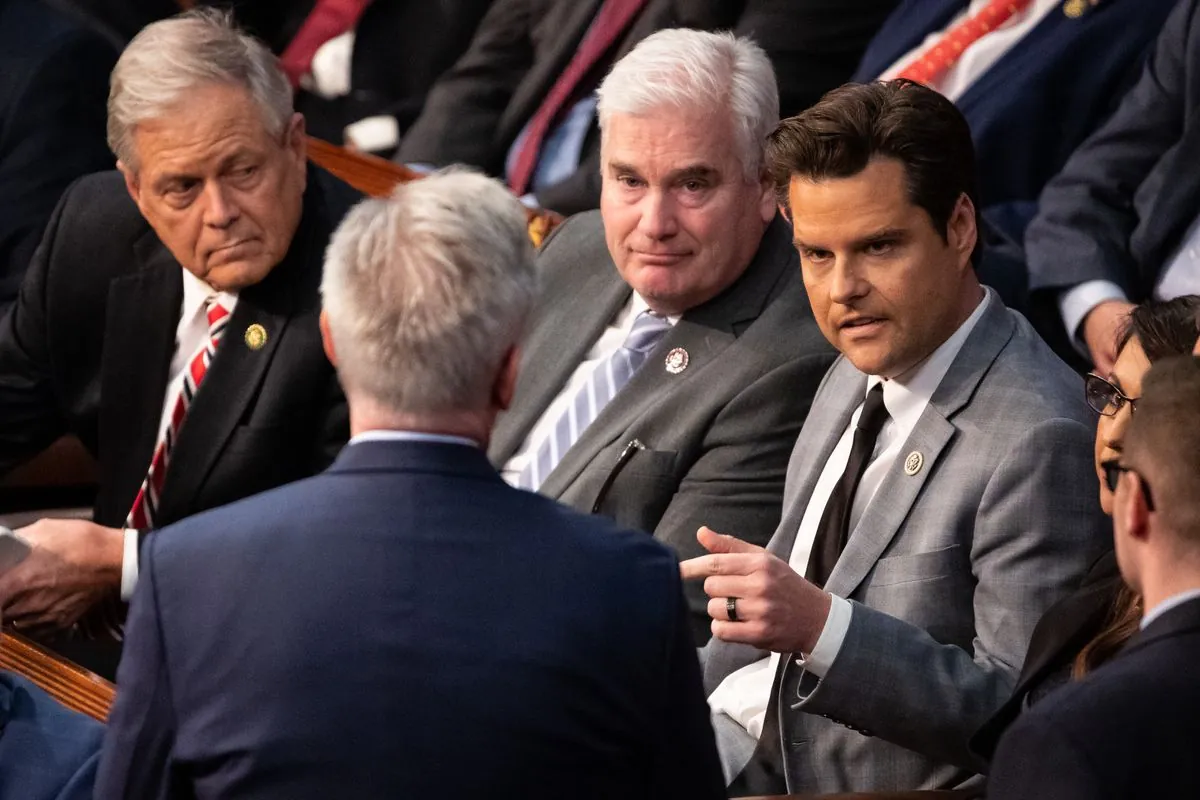McCarthy's Revenge: Mixed Results in GOP Primaries After Speaker Ouster
A year after his removal as Speaker, Kevin McCarthy's allies targeted eight House Republicans in primaries. Results varied, with most anti-McCarthy Republicans likely to return to Congress.

In October 2023, an unprecedented event shook the United States House of Representatives when eight Republican members joined forces with Democrats to remove Kevin McCarthy from his position as Speaker. Now, nearly a year later, the political aftermath of that decision has unfolded in a series of primary elections across the country.
McCarthy's allies sought to retaliate against the rebellious Republicans in their respective primaries. However, the results have been mixed, with the majority of the anti-McCarthy faction likely to return to Congress. This outcome underscores the complex dynamics within the GOP and the challenges of internal party conflicts.
Of the eight Republicans who voted against McCarthy, five are expected to secure their seats in the upcoming general election. Two chose not to seek reelection, while one lost his primary battle. The remaining members either faced no opposition or successfully defended their positions against challengers.
The most notable victory came from Rep. Matt Gaetz of Florida, the leader of the anti-McCarthy group. On August 20, 2024, Gaetz won his primary with a commanding 73% of the vote, defeating Aaron Dimmock, a retired Naval officer backed by McCarthy. This win came despite a significant $3 million campaign against Gaetz by a super PAC linked to the former Speaker.

In a display of political bravado, Gaetz taunted McCarthy during his victory speech, suggesting that even more spending against him would only increase his margin of victory. This exchange highlights the ongoing tension between the two factions within the Republican Party.
The primary results for the other anti-McCarthy Republicans varied:
- Rep. Andy Biggs (Arizona) and Rep. Tim Burchett (Tennessee) ran unopposed.
- Rep. Elijah Crane (Arizona) won with 79% of the vote.
- Rep. Nancy Mace (South Carolina) secured her nomination with 57% support.
- Rep. Bob Good (Virginia) lost his primary in a close race.
- Rep. Ken Buck (Colorado) and Rep. Matt Rosendale (Montana) chose not to seek reelection.
Interestingly, former President Donald Trump played a role in some of these primaries, most notably endorsing John McGuire III over incumbent Bob Good in Virginia. This intervention by Trump proved decisive in Good's defeat, demonstrating the former president's continued influence within the party.
The involvement of super PACs and significant campaign spending in these primaries underscores the high stakes and deep divisions within the Republican Party. The Federal Election Commission reported substantial outside spending in several races, particularly in Virginia and South Carolina.
As the dust settles on these primary battles, the Republican Party faces the challenge of unifying its ranks ahead of the general election. The survival of most anti-McCarthy Republicans suggests that internal party dissent remains a potent force, even in the face of establishment pushback.
"Kevin, if you're watching, spend a little more next time and we'll get to 80"
This quote from Gaetz encapsulates the defiant attitude of the anti-McCarthy faction and hints at the ongoing tensions within the GOP. As the party moves forward, it will need to navigate these internal conflicts while presenting a united front to voters in the upcoming general election.


































